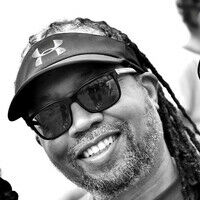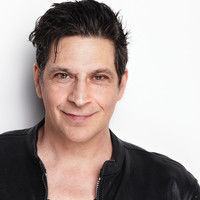Why am I titling it this way? Sounds like pretty self-destructive advice. Hemmingway said it and look what happened to him. On the way to his demise, he did, however, manage to create some amazing work, work that more than just sold books but touched souls. My intent isn’t to promote alcoholism, the bane of many a writer’s existence; it’s to help all of us mine the murky fields of unbridled imagination where truly great stories reside. The paradox is that the great stories that come from come from that scary abyss, are the only ones that fully succeed, but none of the books by the “screenwriting gurus” address this. In fact they ignore it. In endless books and seminars you’ll hear that writing a screenplay is much like building a house. It’s all about the blueprint and constructing a structure that will stand. Others will hammer home the three act structure, telling you to map it all out in cookie cutter fashion with numbered plot points at page 28, “a pinch” at page 60 and final plot point at page 90. A few renegades to this rule will tell you that there are seven steps or twenty something steps that you need to hit in order to have a winning script. The problem is: all of these “methods” ask you to write your screenplay with the same part of your brain that you use to balance your checkbook or do your taxes. Screenplays, like novels, are more than a mathematical equation, more than a blueprint. I’ve been in screenwriting classes where the instructor said, “If you can’t explain to me why a thing is in your script, rip it out, it shouldn’t be there. That’s not the way the creative mind works. Most of our best stuff comes from the dreamscape of another part of our brain. To hinder that puts a gun to the head of our creative essence. The best stuff I’ve ever written came from times when I had no idea what I was writing or why. WRITE DRUNK: Don’t take this in the literal sense. Translation: Do whatever it takes to free up the creative part of your brain that is so often beaten down by our upbringings and societal constraints. Write that first draft with that part of your mind that your “check book” brain can’t control. Because of our conditioning from early childhood on, for many of us, it takes booze or pot or worse to break that barrier into our creative soul but it doesn’t have to and it’s even better if it doesn’t. I confess that I’ve relied on a scotch or two to get me there. But it’s so easy to finally hit that ‘zone’ and be too shit faced to make real use of it. There are better ways. From psychotherapy to meditation to a five mile run, learning to live in the moment, there are other ways to free yourself to the point of connecting with the essence that made you want to write in the first place. Nobody decides to write so they can become rich. It doesn’t matter if you’re J.K. Rowling. Your initial urge was to touch hearts, not fill bank accounts. Don’t censor yourself! Write when you don’t know what the fuck you’re writing or why. Some essence inside of you DOES know. Trust it. All else is bullshit. * * * EDIT SOBER: Once you’ve gotten all that out in your first draft, now it’s time to call on that “check book” part of your brain, not to take charge, merely to suggest, as you shape the story into what you truly need it to be. Here is where the words of Syd Field, John Truby and Robert Mckee most apply. Wake up that checkbook balancing, tax return doing part of your brain and ask it to join the discussion. How do you mold the raw gold that you have into something that truly resonates? I won't rehash all of the good perspectives that can be gleaned from the above mentioned "guru greats". I'm sure you know them well, and well you should. What I will do, for what it's worth, is add in some of my own ideas. My One Sentence Rule: I've come to the decision that all great films are about one specific scene, even one specific line. They are like stones thrown into a calm pond. The film ripples out from them in all directions. One stone per film. As with my analogy of the pond stone, multiple stones would send out many confused ripples, many of which would cancel each other out. Don't get me wrong, a film can and should have many riveting, important scenes and the Syd Field, John Truby, Blake Snyder rules still do apply. However, the whole film must revolve around a single point. The crazy thing is; This single point doesn't have to come at any one specific point, like the act one end point, though often it does but, many times it comes at the act two mid point or enen the act two end. What some films and try to pick this out. I'll give a few examples. My first two examples are from films that everybody has seen and both have those scene at or close to the act one turning point. THE GODFATHER: The entire film revolves around that one scene, one line, when Michael visits his recently shot father, The Don, in the hospital. Needing to protect him from men vicious enough to kill him in his hospital bed, radicalizes him. Suddenly the importance of college and success outside "The Family" dims. Here's where that stone hits the water, one single line: Michael leans over his barely conscious father, lying in his bed, now hidden in the broom closet, and says: "I'm with you now." Tears stream from the old don's eyes. The whole film leads up to and then away from that one line. -RIPPLES. JAWS: The pivotal sentence in this huge hit also happens around the first act break. The Set-up: After Sheriff Brody, against his better judgment, caves to pressure from the Mayor and allows the beaches to stay open for July 4th weekend, the shark attacks and terrorizes the crowd, killing a sickly little boy, the Kitner boy, on his little inflatable raft. Now the scene/line: Days later, the Kitner boy's mother, draped in funeral black, approaches Sheriff Brody, slapping him in the face, accusing him of being responsible for her son's death. Brody watches her walk away. Next to Brody, the Mayor leans over to him and says: "She's wrong, Martin." Brody never even looks at him. His eyes never leave the retreating mother as he says the pivotal line: "No she's not." Everything leads up to or away from that point. - RIPPLES Now for some exceptions that prove the rule. THE RIGHT STUFF: A wonderful film, though it didn't quite do the box office numbers of the first two, it has its share of many loyal fans, myself among them. Here, that pivotal scene, that stone into the pond, also boils down to a single line but it happens very late in the second act. John Glenn is in space. There is a problem with his capsule's heat shield. On re-entry, he has every chance of being incinerated. Alan Shepherd, the first man to go in space and who has had a very contentious with Glenn up to this point, is talking to him from Mission Control in Huston. The NASA head guy gets the news about Glenn's capsule and says: What should we tell him?" Shepherd snaps back, "He's a pilot! You tell him the condition of his craft!" There's the stone! The whole film leads up to and away from this point and it's very late in the film but it's right where it's supposed to be. The film's first act sets up Chuck Yeager as the iconic true hero and then asks: "Can these new seven guys, picked as astronauts, measure up? Are they real pilots or just lab rats? Are they real pilots or just fluffy, pretty boys for the press and parades? Shepherd's line answers that question and anchors the film. Everything flows to it or from it. LITTLE BIG MAN: A 1971 masterpiece by Arthur Penn about Custer's Last Stand and the genocide of the Native Americans. One of my favorite films. It's long, and the pivotal scene/line happens at the beginning of act three! -- Critical to the set up: True historical fact; Custer was an incredible egotist and adopted the song: GarryOwen to be played by a marching band on all of his attacks. - Jack Crab, our main character, is on the edge of a cliff when: He hears Custer's battle music, far away and muted. Suddenly his defused, desperate, depression focuses crystalline into the fine dot of a mission. He'll finally challenge and defeat Custer. The pivotal line: "I had him, but this time, what I held in my hand wasn't a gun or a knife...It was the truth." The film's nearly over, but that's the stone and THAT'S WHERE IT NEEDS TO BE. If you get the chance, watch all of these films to make up your own mind about what I'm saying but, even more importantly, see if you can flesh out these things in other films and, if you think my theory holds true or is, at least helpful, find that moment in your own screenplay. If need be, create it or, at least, augment it.






























Blessings to you as well!
Great to meet you Kenya! Does your company accept others screenplays ?
Hi Angela. Nice meeting you! No. We're a small company and only produce films with in house writers.